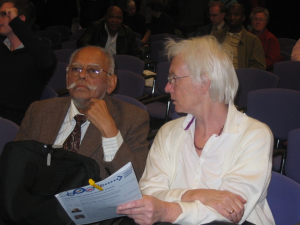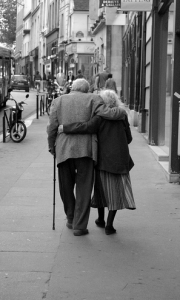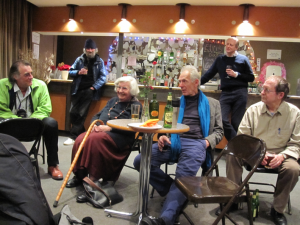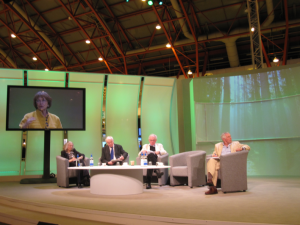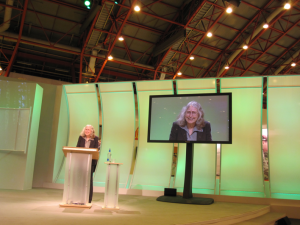Open Cities 16 Openness and Age
‘Open Cities’ evoke many implicit assumptions. The tend to imply some idea of ‘goodness’. In the most general terms open cities are assumed to be sustainable, to provide a harmonious setting for physical, social, environmental and to some extent economic wellbeing to prosper, also for future generations. In physical terms open cities imply access to the public realm by all without hindrance or fear. Social connotations of open cities are more elusive to capture. They may refer to equitable, socially just inclusion of all.
Immigration again
In practice, the debate on social inclusion has been focusing on immigration and the relationship between the native population of cities and newcomers, usually immigrants, moreover mainly from developing countries. In concrete terms it means how receptive, how permeable open cities are to immigrants, how the longer established ‘native’ inhabitants of cities are treating them, what chances they have to survive, prosper, acquire equal rights, possibly integrate and blend in with long established communities.
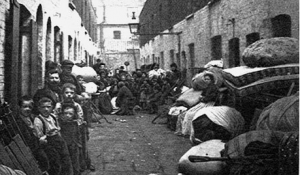
Dia 2 beginning of 20th century, Jewish immigrants in the East End, probably integrated now source: Jewish Museum London
The current economic crisis and unemployment in its wake have exacerbated the tenuous relationship between immigrants and those established over a longer period in cities. Obstacles and inequalities experienced by other groups and how they fare in open cities are far less under discussion. While competition for scarce jobs is a serious issue, it may have obscured other tensions between social groups which scarcity of resources is straining as well. One of them are the older members of urban society, lumped together as the ageing population, regardless of their origin, class, economic position or ethnic belonging.
About Ageism
This is not the place for a detailed demographic analysis of cities within the EU, safe to generalise that population overall is ageing and a significant part of the older generation lives in cities. Often the older inhabitants include a large part of those with lesser means, those who do not have the choice to retire to the country or abroad, those who are perceived to occupy space better used by a younger, economically active generation. Conversely, many senior citizens are economically active or would like to remain so, but who are excluded by ageism from retaining jobs, carrying out civic duties, having proper recognition of their contributions to society such as caring for grand children, participating in voluntary work, paying local taxes and second taxes on their pensions, etc, in short from enjoying the same civic rights and responsibilities as other cohorts, such as those considered ‘economically active’ in real or potential terms.
It was both surprising and encouraging therefore to hear a voice for the ageing population in a commercial manifestation about greening. Ecobuild 2010, held in Earls Court in March 2010 was hailed as the world’s biggest event for sustainable design, construction and the built environment, an important aspect of sustainability, thus by implication of ‘open cities’. Beside many innovative exhibits Ecobuild has laid on three days of conferences, seminars and exchanges.
Dame Joan Bakewell, the UK government’s voice for older people chaired a session, albeit at the very end of the three day event, on “the age of ageing, how demographics will change the built environment”. An impressive member of the older generation and very active in Britain’s politics and societal debates, Bakewell confirmed in no uncertain terms the significant contribution of this generation to urban life.
Opening Cities to Age
Regarding the Open Cities issue, this debate exposed how cities or not very open to a growing part of society, the elder generation and moreover to the women among them. Sara Arber’s academic contribution provided evidence and made the case for changes to enable a fitter and healthier older generation to deploy the full potential of their capabilities. This implies adjustments to the physical fabric, change of legislation to provide more equitable access to opportunities, such as staying in work and, most importantly, a change of attitude towards the elder generation and its worth to society.
What this debate highlighted is the difference between the north and the south, whereby southern societies have closer links between generations, even in cities than northern ones. The influx of immigrants and their families from the south may possibly change that, as long as urban dwellers are willing to appreciate the positive contribution of a more cohesive intergenerational society to a city’s openness.

